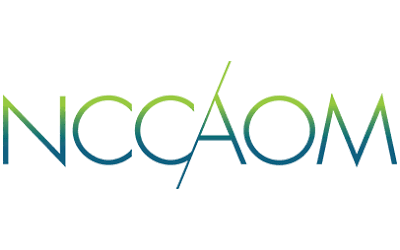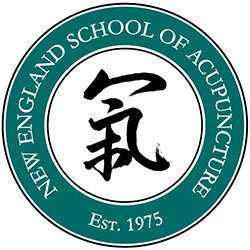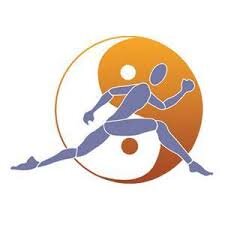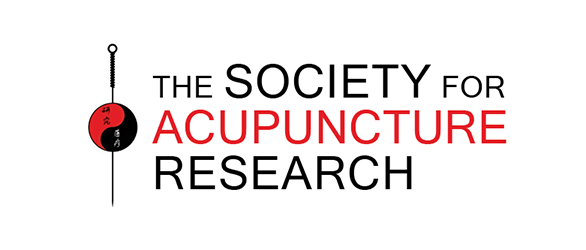Chinese Medicine For Urinary Tract Infections
/Urinary tract infections (UTIs) are a common and often recurring health issue, particularly affecting women. A UTI is usually very painful and for some, it can be not very comfortable, but it doesn’t have to be. Conventional medicine typically treats UTIs with antibiotics often resulting in recurring infections and more medication, while traditional Chinese medicine (TCM) offers a holistic approach to both treating and preventing these infections.
A UTI can be uncomfortable before treatment, but Chinese herbal remedies and dietary recommendations can help manage UTIs, potentially reducing the need for antibiotics and addressing the root causes of recurrent infections.
What are Urinary Tract Infections?
A urinary tract infection occurs when bacteria, typically from the digestive tract, enter and multiply in the urinary system. This system includes the kidneys, ureters, bladder, and urethra. While UTIs can affect any part of the urinary tract, they most commonly occur in the lower urinary tract, which consists of the bladder and urethra.
Common symptoms of UTIs:
Frequent urge to urinate, often with only small amounts of urine passed
A burning sensation or pain in the lower stomach during urination
Cloudy, dark, or strong-smelling urine
Lower abdominal discomfort or pelvic pain (especially in women)
Feeling exhausted
Fever or chills - this typically indicates the infection has reached the kidneys
Chinese medicine perspective on UTIs
In traditional Chinese medicine, urinary tract infections are toxic heat and are typically viewed as an imbalance in the body, particularly in the bladder and kidneys.
A bladder infection is called “Damp heat” in the lower jiao (kidneys, uterus, intestines, and bladder area) and is the most commonly affected area associated with UTIs. Symptoms can include frequent, urgent, and painful urination, along with cloudy or dark urine. In TCM, damp heat is thought to come from a poor diet such as eating greasy or fried foods, sugar, processed foods, spicy food, emotional stress, or external pathogens such as food poisoning entering the body or trauma.
Some people have constitutional weakness such as Qi deficiency in the bladder and kidneys may also lead to recurrent UTIs. Symptoms include frequent urination, especially at night, and the feeling that your bladder is completely empty after urinating. This deficiency can come from fatigue, hormonal imbalances, and poor nutrition or digestion.
Emotional instability and anger can lead to Liver Qi stagnation and heat in the body. The Liver channel flows to the genitals supporting the smooth flow of Qi in the lower abdomen. Emotional stress lowers immune function and can leave a person more vulnerable to infections. For those who have chronic or recurrent UTIs, the pathogen is often chronic and can cause blood stasis as well. This can lead to burning urination, sharp pain, and the presence of blood in the urine.
Understanding these patterns can help TCM practitioners tailor treatments to address the root causes of UTIs, not just the symptoms.
Herbs for UTIs
Chinese herbal medicine offers guidance with formulas and individual herbs to help make your UTI treatment more comfortable. Note: Herbs are powerful substances! Herbal medicine formulas should never be taken without the guidance of a professional herbalist.
Some powerful herbs and food medicines for UTIs include:
Niu Bang Zi (Burdock root) is both a food and medicine. It is rich in antioxidants and supports the immune system. For recurring bladder infections, research shows that the extracts of burdock root are able to break down the biofilm of bacteria that is resistant to antibiotics treatment of bladder infections.
Jin Yin Hua (Honeysuckle) is used for sinus upper respiratory tract infections including colds, influenza, pneumonia, and digestive disorders, and studies show that it has strong anti-viral properties. Jin Yin Hua is part of a classic formula to clear heat called Yin Qiao San. Honeysuckle can be made into a tea and helps to cool during the summer months as well.
Da Qing Ye (Isatis Leaf) is used in formulas to clear out toxicity from warm and febrile disease anywhere in the body. If not in a formula it can be found as tincture and an excellent herb to keep in the medicine cabinet to knock out infection.
Jin Qian Cao (moneywort), this herb has potent heat-clearing and damp-draining properties. Studies have demonstrated its antibacterial effects against E. coli, a common cause of UTIs.
Pu Gong Ying (dandelion) is part of Chinese folk medicine and drank as a tea. It is used for clearing heat TCM to treat viral infections like UTIs and for mastitis. It has diuretic properties and may help flush bacteria from the urinary tract and reduce inflammation.
Huang Bai (phellodendron amurense) herb is one of the most common 50 herbs to help with body healing. Studies have found it helpful to treat recurrent UTIs in women.
It's important to note that you should always speak to a qualified TCM practitioner before consuming any Chinese herbs. If used incorrectly you may experience side effects or the herbs could interact with prescribed medications.
Beneficial foods for UTIs
In Chinese medicine, diet plays a crucial role in both preventing and managing UTIs.
Drink plenty of water to help flush out the infection
Probiotics - fermented foods like pickles and plain Greek yogurt
Blueberries and cranberries may help reduce bacteria sticking to the urinary tract lining
Things to avoid with UTIs
Spicy foods
Greasy or fried foods
Acidic fruits
Excessive sugar and refined carbohydrates
Alcohol and caffeine
Lifestyle recommendations for UTIs
TCM emphasizes a holistic approach to health, incorporating lifestyle changes to prevent and manage UTIs:
Maintain proper hygiene: This includes wiping from front to back after using the toilet and urinating after sexual intercourse.
Stress management: Stress can weaken the immune system and disrupt the body's balance. Techniques like Qi Gong, Tai Chi, or meditation can help manage stress.
Avoid holding urine: Retaining urine for long periods can create a breeding ground for bacteria.
Wear breathable underwear: Cotton underwear allows for better air circulation, reducing moisture that can promote bacterial growth.
Stay warm: In TCM, exposure to cold, especially in the lower abdomen and feet, can contribute to UTIs. Keep these areas warm and protected.
Regular exercise: Moderate exercise promotes overall health and helps maintain the body's natural balance.
Other treatment for UTIs
While Chinese medicine offers valuable tools for managing UTIs, it's important to note that severe or persistent infections may require antibiotic treatment. Many patients find success in combining TCM approaches with conventional medicine under the guidance of healthcare professionals.
For chronic or recurrent UTIs, acupuncture can be a beneficial adjunct therapy. Acupuncture points along the bladder and kidney areas may help strengthen the body's natural defenses and promote better urinary function.
Book your first appointment today
If you have recurring UTIs, you don’t need to suffer. It is important to get to the root cause so you don’t have to continually take antibiotics that are often ineffective. Urinary tract infections affect women more than men and they are usually involved more than bladder issues. But the good news is TCM offers a comprehensive approach to both treating and preventing UTIs, focusing on restoring balance to the body and addressing root causes rather than just symptoms.
At Integrative Healing Arts, we have been helping patients for years to boost their overall well-being and provide a holistic approach to conditions.
Book your appointment with the team today and start your journey to treating urinary tract infections.


















